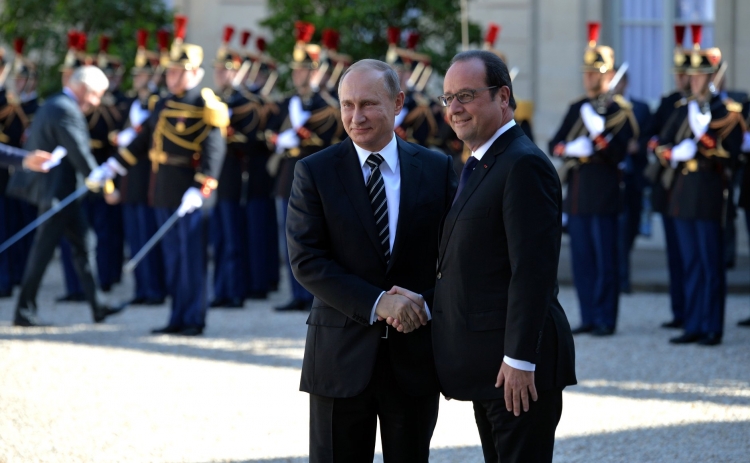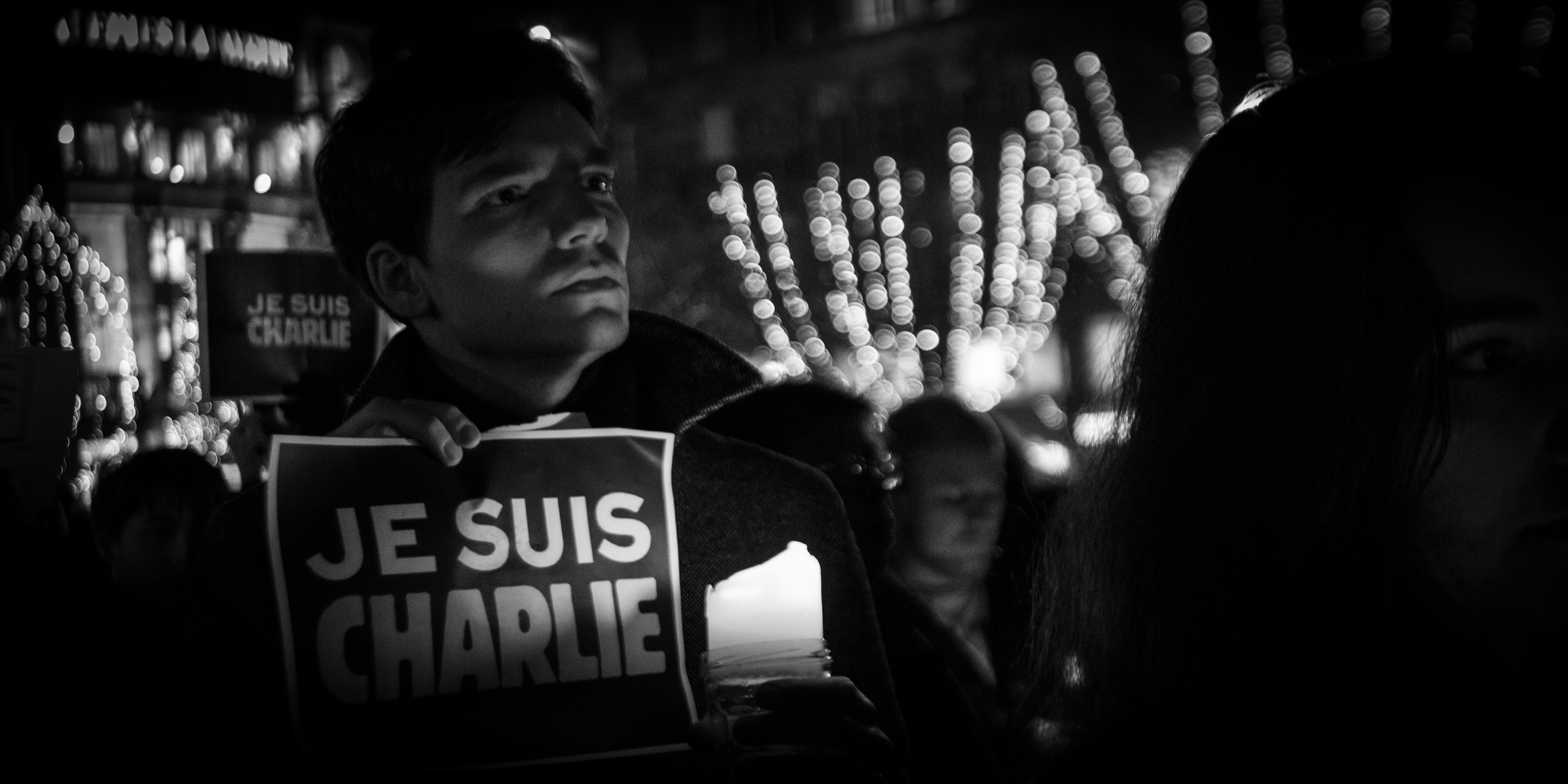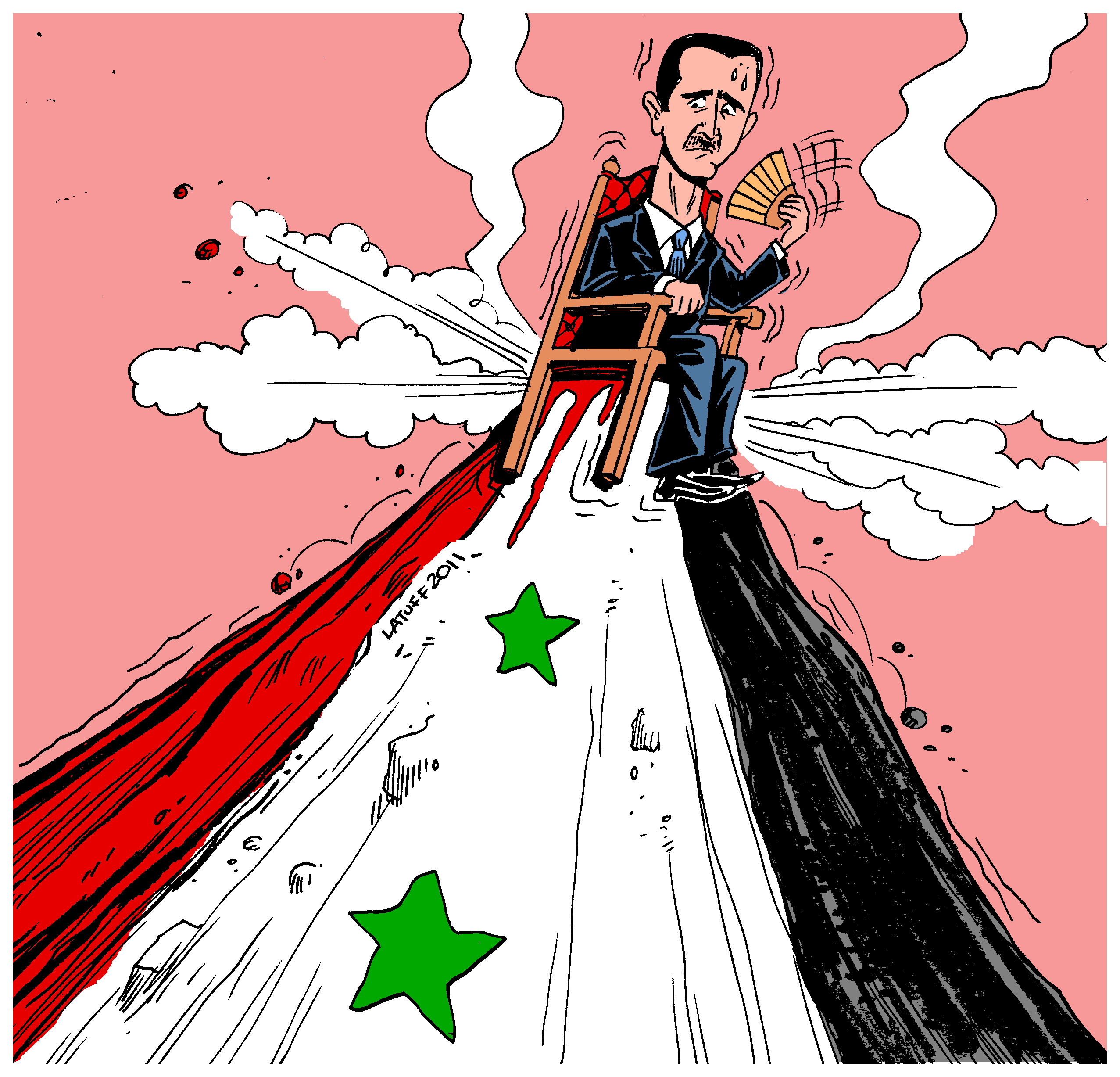On Again, Off Again: Hollande and Putin

Throughout the past few years, the relationship between Barack Obama and Vladimir Putin has become icier than ever; subtle jabs constantly fly back and forth between the two, as the world contemplates whether we’re in the midst of a second Cold War. However, as the relationship between Obama and Putin remains under the media’s microscope, relations between François Hollande and Putin have escaped the spotlight and remain ambiguous.
The Syrian Civil War has drawn powerful states into its conflict, each with their own agenda. While Putin has proven his indestructible loyalty to Bashar al-Assad—Syria’s president—Western nations have generally been supporting the opposition, known as the Free Syrian Army.
Putin’s support of Assad comes as no surprise. In 1971, the Soviet Union made a deal with Syrian President Hafez al-Assad—the current president’s father—which granted the Soviets a naval "Material-Technical Support Point" in the Syrian town of Tartus. This is essentially a naval base, even though Russia denies it. This position is extremely strategic, since it not only gives Russia a base in the Middle East, but also a naval presence in the Mediterranean. In 2006, Russia forgave Syria of $9.6 billion worth of their debt, and became their leading arms supplier. It is rumored that this happened in exchange for Russia’s expansion of their base in Tartus. Therefore, it's clear that Russia has significant personal interests at stake should Assad lose power.
Hafez al-Assad, the father of Syria's current President (Image Credit: Biography.com)
Although France’s relations with Syria go way back—they colonized them from 1918-1946—France does not have any current ties to the regime, which is a factor in their support of the opposition. In 2012, they openly declared their support for the Syrian rebels as the "representatives of the Syrian people," which officially confirmed their anti-Assad position in the conflict.
Post-2012, France and Russia continued to support their ties, with little incentive towards negotiations. Then, Paris was attacked.
The French gather in solidarity after the Paris attacks (Image credit: Wikipedia Commons/ Claude Truong-Ngoc)
After the attacks in November 2015, Hollande vowed to defeat ISIS. To do so, he decided to intensify his focus on Syria—specifically, ISIS’s stronghold in Raqqaa—in hopes of hitting the group where it would hurt the most. Soon, it became clear that Russia and France could be more effective together, since both are powerful regimes with an established presence in Syria. Ergo, the birth of the current relationship between Putin and Hollande.
At first, the media was optimistic about a growing friendship between the two states, in hopes that their willingness to work together could begin to pave a road towards peace. However, when Putin came under intense criticism from Obama for supporting the Assad regime, Hollande backed up his ally. As a consequence, the animosity between Hollande and Putin began to intensify.
Bashar al-Assad sitting on his throne as his country remains in turmoil beneath him (Image credit: Wikimedia Commons)
Last Sunday, Putin canceled his trip to Paris, citing scheduling conflicts. However, the cancelation came abruptly after Hollande announced that Russia could be investigated for war crimes in Syria, since a report stated that a Russian airstrike hit an aid convoy carrying 21 people in September. Ever since his cancelation, there has been a back-and-forth between Hollande and Putin, in which Hollande encourages talks about Syria, while Putin remains blasé in his responses.
The Syrian Civil War has catalyzed a profound conflict between Russia and Western powers, which arguably has not been this tumultuous since the Cold War. However, as we continue to analyze the political repercussions of the war, thousands of Syrians continue to die.
This war has become an example of how political relations, state interests, and egos can endanger human rights and further complicate an already terrible conflict. In order for the conflict to at least move towards peace, all of the countries involved may need to drop their egos and revert back to the classic preschool solution: compromise. Otherwise, the Syrian Civil War will remain a battleground for more than just one state.










